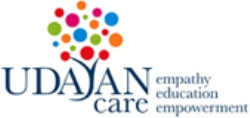
The workshop started with the release of 4th issue of the journal “Instituionalised Children: Explorations and Beyond”, an academic, bi-annual journal on alternative care of children, focussed on South Asian countries. Thereafter, Dr. Kiran Modi set the tone for the workshop.
Mr. Rajiv Kale, Registrar of IP University who was the chief guest shared his experience of working in government and expressed his concern about lowly paid caregivers in CCIs and said that life skills needed to be extremely different for children coming out of the institutions.
Mr. Amod Kanth of Prayas who was the guest of honour on this occasion said there should be no difference in institutional care and non-institutional care. He said that aftercare is one of the programme under JJ Act which has actually failed and emphasized on the compassionate community members who can provide help to such children.
The workshops examined the mental health and other concerns that can intervene in a young person’s adjustment in society later and trainings on how to deal with them. It highlighted the importance of continuum of care for young adults under the legislative framework. It also initiated the idea of launching a network/alliance of Care-leavers, which would act as a support/pressure/advocacy group for the young adults, who are leaving their care homes after 18 years, to save them from social exclusion.
Dr Monisha Akhtar, Psychotherapist from USA, and Dr Deepak Gupta, Child & Adolescent psychiatrist were the key trainers and the panels consisted of different NGO heads, even from Corporate side; as well as young people themselves. Dr. Akhtar talked about social adjustment and adolescent development and kept the audience engaged with her practical experiences. She said that early intervention would help in taking the child out of psychological problems.
Orphaned and disadvantaged youth who face very challenging socio-psychological problems as children in their own families, and later in institutions, need specialised aftercare services once they are out of the institution in order to achieve and experience a life of fulfilled independent living. After Care is an important follow-up step out of institutionalised care. It is pivotal for a successful transition of youth moving out of institutionalised care into becoming responsible citizens of the country.
In addition to creating a powerful forum for social and mental health experts, the workshops gave an opportunity to young people who have come out of institutionalised care to share their experiences. The process helped in understanding the nuances of aftercare and the ways in which one can move ahead in shaping the policies, practices and programmes for after care services in the country. It gave an opportunity to understand the anxieties and challenges faced by these youth, particularly in terms of the question of survival in terms of financial, social and emotional support and resilience. During the session where children from different CCI shared their experiences, they touched the hearts of the audience and a person from audience expressed that this is the first platform he is attending where even children have been asked to speak and share their experiences. He thanked Udayan Care for thinking of such a session.
Several aspects like realising the role of care-giving institutions in broadening the horizons of such youth in terms of getting to know about various avenues of employability and opportunities to move beyond traditional bounds were also covered.
“Aftercare services should prepare the young adults to face the outside world through life skills, managing emotions, new relationships and planning for their future. Investing in our disadvantaged and orphaned youth, so that they have the best chance of succeeding as independent citizens of India, is a crucial investment, both ethically and economically,” says Dr. KiranModi, Managing Trustee, Udayan Care.
India is unique compared to other South Asian Countries, having identified the establishment of aftercare programs within institutionalized care, at least in provisionary measure, in the Juvenile Justice Act and ICPS. However, despite this recognition, there remains little infrastructure to the development of much needed After Care programs, and in this respect, India is falling far short of meeting international standards and best practices. When compared with young adults internationally, institutionalized children transitioning out of care are afforded less time, and by default, less access to necessary support services for successful transitions to independent adulthood. Corporate Comm India (CCI Newswire)




























